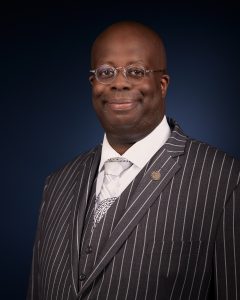By Chad Dion Lassiter, MSW
I was browsing a free book called “A Common Good Approach to Development” on the Internet recently and the first line stopped me. It started with Amartya Sen’s quote, “A misconceived theory can kill.”
Immediately, I thought about the amount of death that has pummeled the United States over the past few years. More than a million deaths COVID-19 to date and 45,222 people died from gun-related injuries in 2020, and more than 107,000 fatalities from drug overdose, 75 percent of those involving an opioid in 2021. All of this from the most recent data available.
Could the root of these problem, as Sen suggests, be embedded in misconceived theory?
Perhaps, the best place to start is the concept of America, which is a theory too. The myth is that we are a place where opportunities abound. There are enough pauper-to-prosperity stories to lend support and credence to this tale.
These success stories are paraded as proof that America, the theory, is not misconceived.
But we are social workers, and we labor in a world of brokenness. Even if I was willing to concede that America, the theory, is right, I would have to argue that the implementation is terribly ill-conceived. One proof is that we are surrounded by so much death which makes me question my social work practices.
That book I stumbled across, published by Open Book Publishing, had an unwieldy title – A Common Good Approach to Development: Collective Dynamics of Development Processes. But what further interested me was how Mathias Nebel, Oscar Garza-Vázquez, and Clemens Sedmak – the editors, concluded their first paragraph:
… our failure to address the systemic and interdependent nature of all these concerns threatening our common humanity does suggest that our current development thinking does not seem to be fit for purpose.
Every month I will ask you to join me in pondering a question on the future of social work in these turbulent times. This month I am asking for your thoughts to this question:
Does our current social work thinking fit our current social justice purpose?
When I first entered the field about three decades ago, there was a new debate brewing over whether we were neglecting advocacy in social work. One problem is an ideological split – are the problems our clients facing the result of an ill-conceived system or of personal behavior choices?
Another problem is our work itself. As it became more about counseling, assessing, finding resources, writing notes and consulting, we can lose the time and energy to be justice advocates.
The idea of the theory of America and the reality invaded the work of the poet Langston Hughes. In 1935 he wrote:
Let America be America again.
Let it be the dream it used to be.
Let it be the pioneer on the plain
Seeking a home where he himself is free.
But Hughes died in 1967 disappointed that so many civil rights efforts, like the 1963 March on Washington, had yielded so few results. Social work can often feel that way, too.
Then Ketanji Brown-Jackson was nominated to be the first African American Supreme Court Justice and Senator Cory Booker quoted lines from Hughes’ Let America be America again during her confirmation hearing. Hughes wrote the poem at a particularly hard time in his life and lived with a fear that racial bigotry would destroy the country.
Yet, he demands that we not lose courage in the fight against the common threats to our humanity.
O, yes,
I say it plain,
America never was America to me,
And yet I swear this oath—
America will be!
I look forward to hearing your thoughts.

Chad Lassiter
Chad Dion Lassiter is a nationally recognized expert in race relations. He has worked on race, peace, and poverty-related issues in the United States, Africa, Canada, Haiti, Israel, and Norway, and is frequently featured in the media providing commentary and solutions to racial issues. Lassiter is currently executive director of the Pennsylvania Human Relations Commission, where he has legislatively delegated authority to investigate filed complaints alleging the occurrence of unlawful discrimination in the areas of employment, housing and commercial property, education, and/or regarding public accommodations.
Disclaimer: The National Association of Social Workers invites members to share their expertise and experiences through Member Voices. This blog was prepared by Chad Dion Lassiter in his personal capacity and does not necessarily reflect the view of the National Association of Social Workers.




